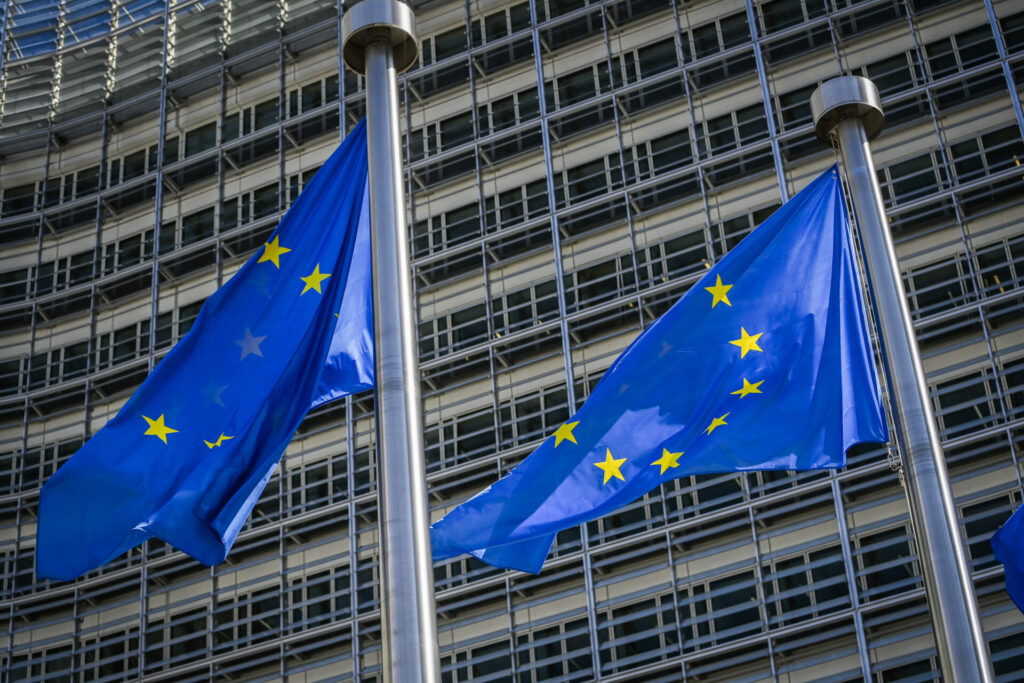European Ombudsman Emily O'Reilly has sent a formal letter to the European Commission asking it to clarify its procedures and rules concerning EU officials' business trips paid for by third parties.
O'Reilly, who as Ombudsman is tasked with investigating instances of potential administrative malpractice throughout the EU institutions, noted that her request was prompted by a recent Politico report, which found that the Director-General of the Commission's transport department (DG MOVE), Henrik Hololei, had taken numerous trips to Qatar between 2015 and 2021 that were partly funded by the Qatari Government.
The report also pointed out that these trips had occurred whilst Hololei's department was involved in negotiating a highly lucrative EU-Qatar air transport deal — thereby raising direct conflict of interest concerns.
"The Qatari government and organisations close to it paying for travel expenses for DG MOVE's most senior official gives rise to legitimate questions around possible undue influence of the EU's decision-making in this area," O'Reilly wrote in her letter.
Commission spokesperson Eric Mamer subsequently informed Politico that the Commission "will of course respond" to O'Reilly's request.
Parliament also at fault
O'Reilly's letter also made explicit reference to the ongoing Qatargate corruption scandal, according to which senior EU parliamentary officials are alleged to have received bribes and other favours from the Qatari Government in exchange for supporting pro-Qatari legislation.
In particular, several parliamentary officials implicated in the scandal are reported to have accepted funded trips to Qatar. These include Belgian MEP Marie Arena (S&D), who failed to declare that her accommodation and flights to and from Doha on 8 and 9 May last year had been paid for by the Qatari Government, as well as fellow Belgian MEP Marc Tarabella (S&D), who did not declare a similar trip to the Gulf peninsula in February 2020.
"I have already noted, in correspondence with the European Parliament (EP), that a scandal such as this is a gift to those who would wish to damage or disparage the entire EU," O'Reilly's letter noted. "I will be following up with the EP on relevant administrative matters."
Beyond Qatargate
The failure to declare sponsored trips, however, has also affected MEPs who are ostensibly not involved in the Qatargate scandal. These include Belgian MEP Tom Vandenkendelaere (EPP) as well as, most notably, European Parliament President Roberta Metsola.
Earlier this year, the Maltese MEP formally declared that she had undertaken up to five trips that were partially funded by third parties over the period from May to October 2022 — long after the deadline for declaring such trips had passed. Under current parliamentary rules, MEPs are required to fill in the required paperwork "no later than the last day of the month following the last day" of any trip funded in whole or in part by a third party.
Related News
- Scandal at European Parliament: President Metsola failed to declare sponsored trips
- Scandal at European Parliament: Third Belgian MEP fails to declare sponsored trip
According to Metsola's Deputy Spokesperson Antti Timonen, Metsola's decision to "comply with this rule" was made "to lead by example, for the sake of transparency".
"While these things have never previously been declared by Parliament Presidents, President Metsola has chosen to do so in an unprecedented move to boost transparency and lead by positive example," Timonen told The Brussels Times.

